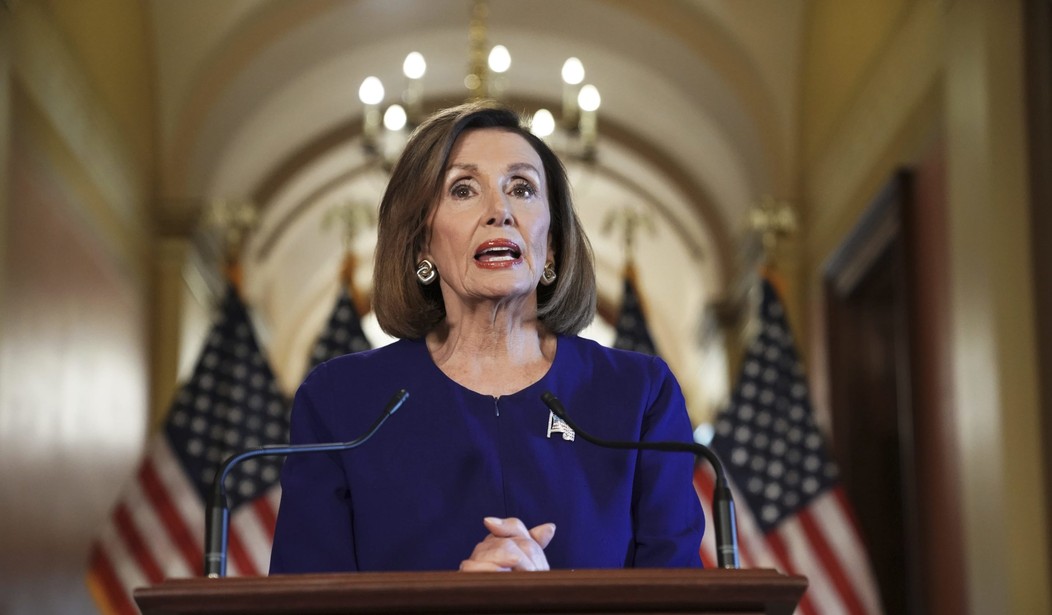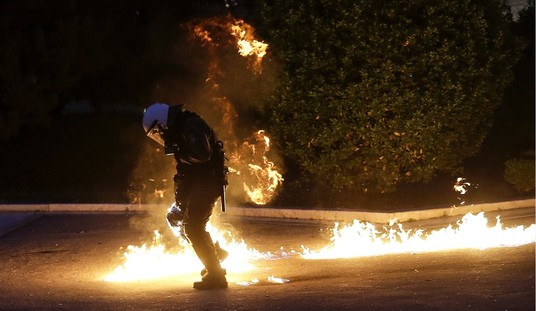When House Speaker Nancy Pelosi asked the House Judiciary Committee to proceed with articles of impeachment, she also announced that the next impeachment hearing will take place next Monday, December 9. Coincidentally, that is the same day Inspector General Michael Horowitz will release his report on whether or not the Department of Justice abused its power in investigating members of the Trump campaign during the 2016 election.
Those who have been following Spygate don’t think this is a coincidence at all.
“Didn’t see that coming: House to hold next impeachment hearing Monday … while IG report is being released,” Andrew C. McCarthy, contributing editor at National Review and author of Ball of Collusion: The Plot to Rig an Election and Destroy a Presidency, tweeted on Thursday.
Didn’t see that coming: House to hold next impeachment hearing Monday … while IG report is being released.
— Andy McCarthy (@AndrewCMcCarthy) December 5, 2019
Mollie Hemingway, senior editor at the Federalist, connected the dots.
“Some thought the late attempt to restart impeachment after the Russia collusion theory imploded was always about avoiding accountability for perpetrating the hoax,” she tweeted. “This is one way to keep IG report’s actual information–as opposed to spin from implicated parties–out of news.”
Some thought the late attempt to restart impeachment after the Russia collusion theory imploded was always about avoiding accountability for perpetrating the hoax. This is one way to keep IG report's actual information–as opposed to spin from implicated parties–out of news. https://t.co/zhl42hdImF
— Mollie (@MZHemingway) December 5, 2019
To this, McCarthy responded, “Yeah, and I assume the big ‘presentation’ is just gonna be the Schiff report we already have … meaning they could easily have done it today or tom’w instead of taking yet another 2 days off amidst this ‘crisis.'”
Yeah, and I assume the big ‘presentation’ is just gonna be the Schiff report we already have … meaning they could easily have done it today or tom’w instead of taking yet another 2 days off amidst this ‘crisis.’
— Andy McCarthy (@AndrewCMcCarthy) December 5, 2019
McCarthy’s book paints a damning — although necessarily incomplete — picture of how the Obama administration seized on shoddy evidence to spin the Trump-Russia collusion narrative. While The New York Times and others claimed the FBI investigation was not based solely on the “salacious and unverified” Steele dossier paid for by the Clinton campaign, the other “connections” involved George Papadopoulos and Carter Page, both tangential to the Trump campaign.
As for Paul Manafort, the temporary Trump campaign chairman with unsavory ties to former Ukrainian President Viktor Yanukovych, the Russia narrative relies on Americans’ misunderstanding of Ukrainian politics. Yes, Yanukovych courted Vladimir Putin — so did his arch-rival. Ukraine bounces back and forth between courting Russia and courting the EU and the U.S. Manafort was less Putin’s puppet and more a hired gun for Ukraine oligarchs who often partner with Russia. None of this is to deny Manafort’s baggage, but Trump hiring Manafort does not prove a desire to collude with Russia.
The strongest part of the entire Trump-Russia narrative involves a meeting between Trump campaign officials and Russian lawyer Natalia Veselnitskaya. Yet Veselniskaya was working with Fusion GPS at the time, the same firm the Clinton campaign paid to compile the Steele dossier. In other words, this most “damning” event could have been a Clinton setup all along.
McCarthy’s book covers the damning text messages between Lisa Page and Peter Strzok, former CIA Director John Brennan’s many politicized investigations, James Comey’s decision to hide from Trump the fact that he was under investigation, and more. It contrasts the FBI’s decision to go easy on Hillary Clinton with the bureau’s shoddy and seemingly partisan investigation of Trump’s campaign.
Both Obama and Clinton vociferously insisted that any Russian meddling in the election would have little impact on the result — because they fully expected Clinton to prevail. Only after Trump’s loss did the narrative of Russian election meddling take on outsize importance, and it paired well with the Trump-Russia investigation.
Perhaps most damning was the Obama administration’s decision not to warn Trump that supposed Russian agents were trying to influence his campaign. If the concerns were real, and Trump was not himself under suspicion — as Comey would later assure him, in order to keep the investigation running after Trump became president — why not warn the Republican candidate so he could protect his campaign from foreign influence?
McCarthy connects the dots, showing how American intelligence worked with British intelligence and others to investigate Trump’s campaign and perhaps undermine his presidency. This was the real “collusion,” in his telling.
Strzok and Page discussed an “insurance policy” in case Trump got elected. They intended to continue the investigation, and it seems Democrats hyped the Trump-Russia narrative hoping to build an impeachment case.
On Monday, the Spygate bill comes due. What better way to distract from any Obama Administration malfeasance than to schedule more public impeachment hearings?
Follow Tyler O’Neil, the author of this article, on Twitter at @Tyler2ONeil.









Join the conversation as a VIP Member